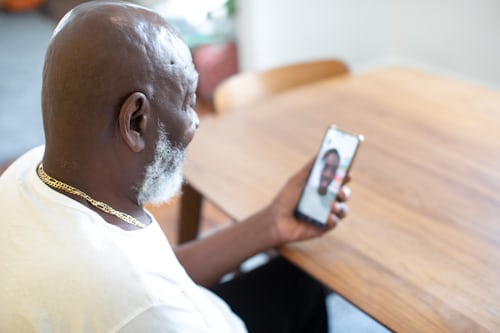More Kenyans are skipping regular voice calls and going straight to WhatsApp. Whether it’s a quick one-on-one or a full group chat, the app has quietly taken over how people connect across towns, homes, and businesses.
The reasons are straightforward. Mobile data is now cheaper, and home WiFi is becoming more common—even in places that didn’t have it a few years ago.
Airtel’s 30GB bundle, going for around Sh1,000, has made data-heavy apps like WhatsApp a practical choice. Faiba, Safaricom Home, Zuku, and Poa Internet are offering monthly home packages that start as low as Sh2,500. For households with multiple users, that’s often more affordable than topping up airtime several times a week.
Once internet access is sorted, calling through WhatsApp becomes the easier—and cheaper—option. You don’t need airtime, and the call quality is often better, especially on WiFi.
It’s not just individual users making the switch. Small businesses, delivery riders, tutors, and hairdressers now rely on WhatsApp audio and video to coordinate with clients. For many, it’s a simple case of using what works—and what won’t run up their phone bill.
Group calls have also taken off. WhatsApp allows up to 32 people on a call, which makes it useful for extended families, social circles, or small remote teams trying to stay in touch without relying on SMS or regular phone calls.
Smartphone access is a big part of the shift. The Communications Authority says over 63% of phones in Kenya are now smartphones. WhatsApp is usually one of the first apps installed—and it’s already familiar to most users.
In homes with stable internet, WhatsApp has become the first option for communication. Regular calls are still used, but mostly when the network is down or someone’s out of data.
What’s happening is less about trends and more about utility. People are choosing WhatsApp calls because they make financial and practical sense—especially in a digital economy where every shilling matters.
Traditional voice calls aren’t disappearing overnight, but they no longer hold the same position they once did. In many Kenyan homes, WhatsApp has taken that spot—and it doesn’t seem to be letting go any time soon.
Follow us on WhatsApp, Telegram, Twitter, and Facebook, or subscribe to our weekly newsletter to ensure you don’t miss out on any future updates. Send tips to editorial@techtrendsmedia.co.ke




